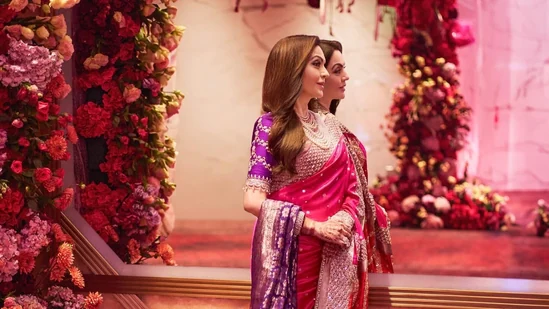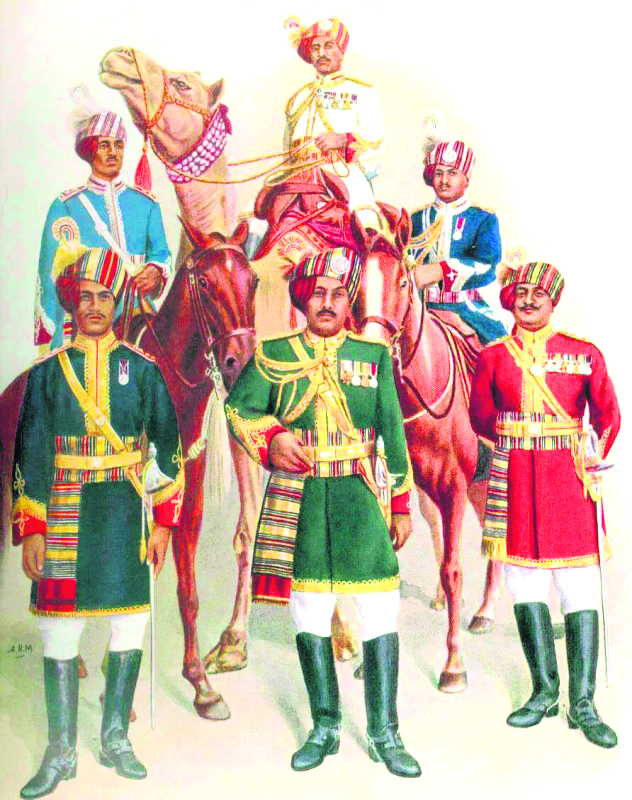The princess of Danta, Richa Rajyalaxmi personifies a bubbly and kind demeanour that her family of royals has been historically known for. A state situated in the Aravalli range, Danta falls in a tribal belt and is most famous for the Shri Amba Maa temple situated at the foothills of the Arasur hills. This young princess from Danta now gives refuge to many block printers, quilt makers and cotton weavers with her brand, which is named after her sister, Chitranjani, who is hearing-impaired since birth and has challenged stereotypes and worked to overcome difficulties.
Richa’s quilts in the softest of cottons with the most ethereal block prints are a sellout. She works closely with block printers in Jaipur and hopes to employ many more of them. Presented here are excerpts from a Q&A session with her.
Q. How did you think of making quilts?
A. Home linen as a product is bought and used all year long, generating business all year long. I felt it was a better niche as it’s a little different than getting into a clothing line.
The other thing that I personally noticed is an increase in the working female population, which has not only increased average family incomes, but also changed the outlook of women towards their homes and their interiors.
Just how clothing line brands have adopted the fast fashion concept, where everyone loves to be trendy, why cannot there be a home furnishing brand. I feel a home defines us just as how fashion defines an individual.
Therefore, I thought of home furnishing products with fine hand block prints as they elevate the space of a room by giving it a contemporary touch with our collection, which also showcases a handcrafted legacy.
Q. How many artisans are you employing?
A. I work with a lot of different groups and my concept is about giving them work, but they are free to pick up work for other brands too, therefore, generating more income and showcasing their talent via other brands. I don’t have a specific group which is employed under me, but we work together as a team. I am just the face for the artisans, someone who is helping them to showcase their work on various platforms.
Q. How do you think ‘vocal for local’ is going to help artisans?
A. I would like to start by saying that ‘vocal for local’ is a concept which dates back a long time. It has been there to support our rich culture and heritage. It is not a new concept, but now we all have an opportunity to revive those local industries that were taken for granted in the era of globalisation. It’s time to usher in economic policies that produce welfare, sustainable incomes and help in job creation. Therefore I feel that ‘vocal for local’ is just what we needed to revive our economy.
Many artisans lost their sheen due to unfair competition from other countries and unfair import/export policies. As a country, we never reposed trust on indigenous talent, resources and knowledge, and over-emphasised foreign capital and multi-national companies. Therefore, ‘vocal for local’ is a platform which will give them the necessary support and strength so that there is not only more employment opportunities, but also production of high quality products at the most economical costs.
During this pandemic, the one thing good which has come is support for our own country, heritage and culture. The awareness and understanding of the concept of ‘vocal for local’ has increased due to social media, therefore, I feel we all should continue to support small business and local artisans through social media and reach out to as many people as we can, because by supporting our own artisans, we are supporting our own belongings.
Q. What are you other passions?
A. Actually, I did convert my passion into work by starting my own brand, which is just a year and a half old now. Chitranjani, the brand, is named after my elder sister who is hearing-impaired from birth, but has challenged stereotypes and worked to overcome difficulties. She has a positive approach towards life, and it has not always been very easy both on a personal and social level, but she still serves to explore and illustrate what empowerment can mean.
My sister has been an inspiration to me and can be to many others, therefore, I have taken my inspiration and passion and made it the cause of my brand to help NGOs that work with the hearing-impaired to educate them to live up to their full potential and provide the key to empowerment for those who are marginalized in having access to the information which can enable them to live an ordinary or even an extraordinary life. Therefore, with every purchase of our products, you will be supporting a hearing-impaired individual uplift their life.
Q. Tell us more about Danta.
A. I belong to the royal family of Danta. My forefathers ruled the former Danta state which got its title from Jahangir, the Mughal emperor. The former Danta state motto originated from the story of when my forefathers gave shelter to Jahangir when he revolted against his father, Emperor Akbar. That is why our motto says, ‘Sharanagath Sadhar’ (giving refuge).













